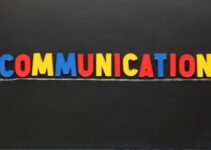Poor Listening Habits
Research shows that after two days we retain only one fourth of what we hear. In fact, we do not hear all that is said and forget many of the things we hear. This is a reflection of our poor listening habits.
Inefficiency of listening can be harmful for the organization. Some people like to take more than they like to listen, some listen selectively, some cannot concentrate for long on what others are saying or some may just listen superficially without really bothering about what is being said. All this leads to ineffective listening.
It is possible to improve your listening habits by identifying which are the poor listening habits and then working upon them to change them.
Some of the most common poor listening habits are:
1. Inattentiveness
Not paying attention to the speaker is one of the major causes of inefficient listening. The listener may get distracted or may not want to hear what is being said. The listener withdraws his attention and starts daydreaming.
2. Faking Attention or ‘Pseudolistening”
Often people who are not actually listening and are thinking about something else deliberately try to look as though they were listening. The listener may do so as not to appear rude or discourteous to the listener. At times, this may lead to disasters in communication because such pretence may leave a speaker with the impression that the listener has heard some important information or instructions offered by him.
3. Focusing on Delivery
Sometimes a person concentrates on how someone says something that he pays little attention to what he or she is actually saying. The listener may focus on the appearance and other nuances of the speaker and may, in the bargain, miss out on the real meaning of what is being said.
4. Rehearsing
If the listener is thinking about his reply before the other person has finished, then in all probability he is not listening. Some people listen until they want to say something; then they quit listening, start rehearsing what they will say, and wait for an opportunity to respond.
5. Interrupting
Some people prefer to do the speaking rather than listen to someone speak. Such a listener does not wait for the speaker to complete what he is saying so that the complete meaning can be determined, but interrupts often resulting in a break of the chain of thought of the speaker and thus hampering the communication process. Unnecessary interruptions may discourage and irritate the speaker.
6. Hearing what is Expected
People like to hear what they want to hear. Very often, people think they heard speakers say what they expected them to say. Further, people tend to accept only that part of the communication which is consistent with their existing beliefs.
Alternatively, they refuse to hear what they do not want to hear and what goes against their beliefs and perception. Poor listeners tend to filter those parts of the message from their understanding which do not readily fit with their own frame of reference.
7. Avoiding Difficult and Uninteresting Material
The listener may just switch off listening when he finds the material difficult to understand or uninteresting. This may become a habit with the listener and he will conveniently stop listening every time he encounters some difficult or uninteresting material. Many a times, the listener may assume in advance that the subject is boring, unimportant or difficult
8. Being Defensive
Sometimes listeners feel threatened by what the speaker is saying and they immediately become defensive, that is, they try to justify their stance on whatever is being said. They may just overreact to certain words and phrases. They get so involved in guarding themselves that they do not get the actual message of what is being said.
9. Being on the Offensive
Some listeners seem to wait for the chance to criticize someone. They listen intently for points on which they can disagree and vent out their criticism. They constantly try to counter whatever is being said. Here too they miss out the actual message of what is being said.






